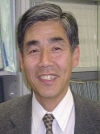 |
|
|
|
| |
 |
|
| |
 |
 Plenary Talk I - October 28(THU), 2010 (11:25~12:15) Plenary Talk I - October 28(THU), 2010 (11:25~12:15) |
 Prof. Manfred Morari (ETH Zurich, Automatic Control Laboratory / Switzerland) Prof. Manfred Morari (ETH Zurich, Automatic Control Laboratory / Switzerland)
|
 |
 Real-time Optimization for Model Predictive Control Real-time Optimization for Model Predictive Control |
 Abstract: I will discuss some of our recent work that brings the benefits of model predictive control to small-scale, high-speed systems and that can dramatically reduce online MPC loop execution to microsecond timescales. We show how our new real-time MPC schemes provide constraint satisfaction and stability, while optimizing for performance, at speeds several orders of magnitude faster than state-of-the-art. No single real-time optimization method will be able to tackle the broad range of possible problem classes, and so we present three techniques suitable for fast-sampled systems in the range of nano-, micro- and milli-seconds respectively. The controller synthesis methodologies are unique in that they take the available online computational resources as input and produce a controller that will execute within these bounds while satisfying constraints and stabilizing the system. Abstract: I will discuss some of our recent work that brings the benefits of model predictive control to small-scale, high-speed systems and that can dramatically reduce online MPC loop execution to microsecond timescales. We show how our new real-time MPC schemes provide constraint satisfaction and stability, while optimizing for performance, at speeds several orders of magnitude faster than state-of-the-art. No single real-time optimization method will be able to tackle the broad range of possible problem classes, and so we present three techniques suitable for fast-sampled systems in the range of nano-, micro- and milli-seconds respectively. The controller synthesis methodologies are unique in that they take the available online computational resources as input and produce a controller that will execute within these bounds while satisfying constraints and stabilizing the system.
I will motivate our work on real-time MPC with several applications, including wave power systems, camera networks, racing cars and smart power grids. Industrial examples will be presented throughout, which serve to highlight theoretical advancements and the extensive software tools that help to bring the developed theory to bear in practical scenarios.
- |
|
 |
 Plenary Talk Ⅱ - October 29(FRI), 2010 (11:15~12:05) Plenary Talk Ⅱ - October 29(FRI), 2010 (11:15~12:05) |
 Prof. Shinji Hara (Department of Information Physics and Computing, Prof. Shinji Hara (Department of Information Physics and Computing,
The University of Tokyo / Japan)
|
 |
 Toward Glocal Control: A Unified Approach to Decentralized
Cooperative Control for Networked Large Scale Dynamical Systems Toward Glocal Control: A Unified Approach to Decentralized
Cooperative Control for Networked Large Scale Dynamical Systems |
 Abstract: Recently, systems to be treated in various fields of engineering
including control have became large and complex, and more high level
control such as adaptation against changes of environments for open
systems is required. One of the distinguished features in such
large scale dynamical systems is that our available actions of
measurement and control are restricted locally although our main
purpose is to achieve the desired global behaviors.
This motivates us to develop a new research direction so called
"Glocal Control," which means that the global purpose is achieved
by only local actions. At the beginning of this talk the idea of
glocal control is explained through real world requirements in
meteorological phenomena and biomedical systems. As a theoretical
approach to realize glocal control we introduce a new unified framework
for hierarchical multi-agent networked dynamical systems based on
a class of linear time-invariant systems with generalized frequency
variables and show some fundamental results on stability.
The results include a Hurwitz type stability criterion, which can be
reduced to an LMI feasibility problem involving generalized Lyapunov
inequalities, and robust stability conditions. We then focus on a
cooperative stabilization problem by constant output feedback and
examine the properties with examples of inverted pendulum systems.
The last part is devoted to an application of oscillatory behaviors
in a class of gene regulatory networks. Abstract: Recently, systems to be treated in various fields of engineering
including control have became large and complex, and more high level
control such as adaptation against changes of environments for open
systems is required. One of the distinguished features in such
large scale dynamical systems is that our available actions of
measurement and control are restricted locally although our main
purpose is to achieve the desired global behaviors.
This motivates us to develop a new research direction so called
"Glocal Control," which means that the global purpose is achieved
by only local actions. At the beginning of this talk the idea of
glocal control is explained through real world requirements in
meteorological phenomena and biomedical systems. As a theoretical
approach to realize glocal control we introduce a new unified framework
for hierarchical multi-agent networked dynamical systems based on
a class of linear time-invariant systems with generalized frequency
variables and show some fundamental results on stability.
The results include a Hurwitz type stability criterion, which can be
reduced to an LMI feasibility problem involving generalized Lyapunov
inequalities, and robust stability conditions. We then focus on a
cooperative stabilization problem by constant output feedback and
examine the properties with examples of inverted pendulum systems.
The last part is devoted to an application of oscillatory behaviors
in a class of gene regulatory networks. |
|
 |
 Plenary Talk Ⅲ - October 29(FRI), 2010 (14:55~15:45) Plenary Talk Ⅲ - October 29(FRI), 2010 (14:55~15:45) |
 Dr. Alin Albu-Schaffer (DLR (German Aerospace Center), Institute of Robotics Dr. Alin Albu-Schaffer (DLR (German Aerospace Center), Institute of Robotics
and Mechatronics / Germany)
|
 |
 Soft Robotics: Control of Robots Interacting with Humans and Unknown
Environments Soft Robotics: Control of Robots Interacting with Humans and Unknown
Environments |
 Abstract: In order to interact with unknown environments and with humans, modern robots have design and control features which distinguish them substantially from classical, position controlled industrial robots. Light-weight design, complex, humanoid kinematics, nonlinear compliance elements, and rich sensor capabilities characterise these complex plants, asking for new, adequate control strategies. Abstract: In order to interact with unknown environments and with humans, modern robots have design and control features which distinguish them substantially from classical, position controlled industrial robots. Light-weight design, complex, humanoid kinematics, nonlinear compliance elements, and rich sensor capabilities characterise these complex plants, asking for new, adequate control strategies.
I will present the main design and control ideas of actively controlled compliant systems using as examples the DLR arms, hands, and the humanoid manipulator Justin. Variable, controllable impedance (stiffness, damping, and mass) is used to optimally adapt the systems to the task and the operating environment. Nonlinear observers are designed for detecting robot failure or collisions with humans and the environment and thus assure safety of humans in any circumstances during the interaction with the robots.
Inspired by the human musculo-skeletal system, antagonistic, variable compliance actuators are a next logical step towards robots approaching the performance of their biological counterparts. Their control is providing an exciting link to neuroscience by helping to understand human motion principles and validate some biological sensory-motor control hypotheses.
The presented approaches are used in space, service, and medical applications, as well as in a new type of industrial robotics focused on skilful assembly and cooperation with humans.
|
|
 |
 Plenary Talk Ⅳ - October 30(SAT), 2010 (11:15~12:05) Plenary Talk Ⅳ - October 30(SAT), 2010 (11:15~12:05) |
 Prof. Kwang-Hyun Cho (Department of Bio and Brain Engineering, Prof. Kwang-Hyun Cho (Department of Bio and Brain Engineering,
KAIST / Korea) |
 |
 Systems Biology and Bio-Inspired Engineering: Systems Biology and Bio-Inspired Engineering:
Challenges and Opportunities at the New Cross-Disciplinary Fields |
 Abstract: The life sciences are witnessing a cross-disciplinary research induced shift in paradigm from the traditional characterization of individual molecules towards a system-level understanding of interactive pathways and networks. Accordingly, it is now becoming widely accepted that a system-theoretic approach needs to be integrated with biological sciences such that the role of genes, proteins, metabolites and cells can be understood and defined through their nonlinear interactions. The principal goal of systems biology is to understand the nature of the ‘organization and dynamics’ of biological interaction networks. In this context, my research has been centered on system-level investigations of cellular signal transduction pathways, reverse engineering of biomolecular regulatory networks, and unraveling hidden cellular dynamics. I am currently extending those studies to understand complex disease mechanisms and to develop a virtual platform for tailor-made therapy. Another objective in my group is to apply the knowledge obtained from systems biology and develop a new type of engineering, which we call bio-inspired engineering. In this presentation, dynamical analysis of biological networks is to be used as a vehicle for discussion on what the challenges are if we are to understand/apply biological systems as dynamic network systems. Abstract: The life sciences are witnessing a cross-disciplinary research induced shift in paradigm from the traditional characterization of individual molecules towards a system-level understanding of interactive pathways and networks. Accordingly, it is now becoming widely accepted that a system-theoretic approach needs to be integrated with biological sciences such that the role of genes, proteins, metabolites and cells can be understood and defined through their nonlinear interactions. The principal goal of systems biology is to understand the nature of the ‘organization and dynamics’ of biological interaction networks. In this context, my research has been centered on system-level investigations of cellular signal transduction pathways, reverse engineering of biomolecular regulatory networks, and unraveling hidden cellular dynamics. I am currently extending those studies to understand complex disease mechanisms and to develop a virtual platform for tailor-made therapy. Another objective in my group is to apply the knowledge obtained from systems biology and develop a new type of engineering, which we call bio-inspired engineering. In this presentation, dynamical analysis of biological networks is to be used as a vehicle for discussion on what the challenges are if we are to understand/apply biological systems as dynamic network systems. |
|
|
|
|
|
